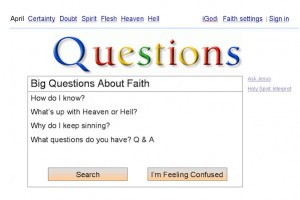
God on Film: Earth to Echo – Aliens Away From Home
Sycamore Creek Church
July 13/14, 2014
Tom Arthur
Have you ever felt lost? Have you ever felt like you’re in the wrong place? The wrong school? The wrong friends? The wrong job? The wrong city? The wrong marriage? The wrong life? The wrong planet? All of us have felt lost at some point. All of us have felt a long way from home. Maybe you even feel lost or away from home right now. What do you do when you’re lost and away from home?
A hunter went out for a day of hunting and along the way got lost. After stumbling around in the forest for several hours in was tired, but he kept searching for something that looked like home. Eventually after several days he stumbled into someone else’s camp. He said, “I sure am glad to see you. I’ve been lost for three days.” The other hunter replied, “Don’t get too excited, buddy. I’ve been lost for three weeks.”
A week ago I took my son, Micah, on his first backpacking trip. We went to North Manitou Island. I gave him a small whistle to wear around his neck at all times under his shirt. I told him that if he ever felt scared or lost to blow the whistle. I told him that his daddy would find him. Don’t you wish you had a whistle that you could blow when you were lost or scared, and then your heavenly daddy would come find you?
Today I’d like to look at a story in the Bible about a time when Israel was lost and away from home. I want to give four tips to aliens who find themselves lost and away from home.
1. We’re All Aliens In Exile
First, you’re not alone. We read from the prophet Jeremiah about a time when the Babylonian Empire came to Jerusalem and lay siege to the city. Eventually the walls came down and the Babylonians carted off all the people of influence away to Babylon. We read in Jeremiah:
This is what the Lord of Heaven’s Armies, the God of Israel, says to all the captives he has exiled to Babylon from Jerusalem.
~Jeremiah 29:4 NLT
The siege lasted four months and Jerusalem fell in 597BC. The Hebrew people were no longer a Jewish cultural cocoon. They could no longer assume certain religious rituals or cultural practices or communal identity. They couldn’t plan on eating kosher food. They couldn’t plan on observing the Sabbath. They couldn’t follow the rituals of temple sacrifice. And they couldn’t keep separate what they considered clean and unclean. They were thrown into the mixing pot of Babylon and became aliens in exile away from their home.
We’re all aliens in exile. There is a way in which we are all living in foreign land. C. S. Lewis says:
If we find ourselves with a desire that nothing in this world can satisfy, the most probable explanation is that we were made for another world. If none of my earthly pleasures satisfy it, that does not prove that the universe is a fraud. Probably earthly pleasures were never meant to satisfy it, but only to arouse it, to suggest the real thing. If that is so, I must take care, on the one hand, never to despise, or be unthankful for, these earthly blessings, and on the other, never to mistake them for the something else of which they are only a kind of copy, or echo, or mirage. I must keep alive in myself the desire for my true country, which I shall not find till after death.
~ C.S. Lewis (Mere Christianity)
I don’t think Lewis meant to suggest that we weren’t made to live on the earth in these bodies, but rather that something has gone wrong with the intent of God’s creation and until Jesus comes back to restore creation and make all things new, we will always be living in a world that we were not made for, a broken, wounded, sinful, enemy-occupied world.
Or to put it another way, Stanley Hauerwas and Will Willimon write:
The church is a colony, an island of one culture in the middle of another. In baptism our citizenship is transferred from one dominion to another, and we become in whatever culture we find ourselves, resident aliens.
~Stanley Hauerwas and Will Willimon (Resident Aliens)
The original word in Greek for the church is “ecclesia.” Ecclesia is made up of two parts: Ec = “out” and Kaleo = “to call.” The church is the community that is called out of the world and country they live in. Their primary allegiance isn’t to any flag or country, but their primary allegiance is to God’s community, God’s kingdom, the church. We are then all resident aliens, living in a place we don’t belong.
If you feel like you are an alien lost and away from home, know that we are all aliens in exile.
2. Work for Peace and Prosperity
So should we neglect or ignore the world in which we find ourselves living? Absolutely not! As we continue reading God’s word to Israel in exile through Jeremiah, we hear a clear call to live where we are.
“Build homes, and plan to stay. Plant gardens, and eat the food they produce. Marry and have children. Then find spouses for them so that you may have many grandchildren. Multiply! Do not dwindle away! And work for the peace and prosperity of the city where I sent you into exile. Pray to the Lord for it, for its welfare will determine your welfare.”
~Jeremiah 29:5-7 NLT
It would be easy to give up on the foreign country of Babylon. It would even be easy to do all you could to undermine the place where you live, especially if they were responsible for sacking your home town and pulling you away from home. But Jeremiah tells the people to put down roots by building houses. If you’ve ever built or bought a house you know how it roots you in a place. Jeremiah tells them to produce the things they need to sustain themselves: gardens, food, produce. Go on with your dreams and hopes for the next generation. Marry. Have children. And grandchildren! Don’t whither away but multiply. Grow. Add people to the family of God! Then maybe most shocking of all, Jeremiah tells the people to pray for the wellbeing of the Babylonian Empire. Pray for your enemies! Pray for the people who make you feel lost and away from home. Pray for their welfare and their prosperity.
You know that bully who makes you feel lost at school. Pray for him. You know that boss or co-worker who makes your job miserable. Pray for her to get a raise. You know that wife who you can’t ever remember why you married her in their first place because all the love and spark is gone from your marriage, pray for her and serve her so that she thrives.
If you find yourself feeling like an alien lost and away from home, work for the peace and prosperity of the place where you find yourself.
3. Rest in God’s Future Plans
What about the future? What will it hold? Will things get better? Will you ever stop feeling lost and away from home? Will you ever cease to be an alien? If we go back to the prophet Jeremiah, we read one of the most well known passages in all of the Bible:
This is what the Lord says: “You will be in Babylon for seventy years. But then I will come and do for you all the good things I have promised, and I will bring you home again. For I know the plans I have for you,” says the Lord. “They are plans for good and not for disaster, to give you a future and a hope. In those days when you pray, I will listen.
~Jeremiah 29:10-12 NLT
Notice that God says “I know.” God knows your future, you don’t. And notice that God doesn’t just have one place for you but God has many plans. I think that too often we think of God’s plan our future like a multiple choice question with one right answer. If we miss the right answer, then we’re out of luck for the rest of our lives. We’ve blown it all. But God’s will isn’t like a test with one set of right answers. I think God’s will is more like a playground surrounded by a fence. There are lots of right things to do within the playground. The fence around the playground is the moral law. The fence is more about how you live and play on the playground. You do to others as you would have them do to you. You love your neighbor as you love your self. You don’t steal, cheat, lie, murder, covet, and the like. Don’t go outside the fence but inside the fence, God delights in watching you find your own joy. There are many plans that God has for you in this playground of life, not just one plan.
When you find yourself lost and away from home, rest and relax in God’s plans for you.
4. You Will Go Home
The last tip Jeremiah has for aliens who find themselves away from home is this: know that you will eventually go home. Jeremiah says:
If you look for me wholeheartedly, you will find me. I will be found by you,” says the Lord. “I will end your captivity and restore your fortunes. I will gather you out of the nations where I sent you and will bring you home again to your own land.”
~Jeremiah 29:13-14 NLT
You will not be an alien for all eternity. You will come to your heavenly home. What image do you have of heaven in your imagination? Do you think of fat little baby angels sitting on clouds playing harps and singing for all eternity? If so, then your imagination is probably shaped more by a toilet paper commercial than the Bible. The primary images of heaven in the Bible are a party, a garden, a new city and community, a place without evil, a mansion with a room for you, a homecoming, and a banquet or feast.
Today we each have the opportunity to get a little taste of heaven as we come to the heavenly feast that is communion. In communion we get a glimpse of what heaven is like. A community of friends energized by a shared mission and vision sitting around a table together sharing a feast in the presence of God. It’s like the old gospel tune, Sweet By and By:
There’s a land that is fairer than day,
And by faith we can see it afar;
For the Father waits over the way
To prepare us a dwelling place there.
In the sweet by and by,
We shall meet on that beautiful shore;
In the sweet by and by,
We shall meet on that beautiful shore.
Prayer
Make it soon, Lord. Make it soon.







Recent Comments